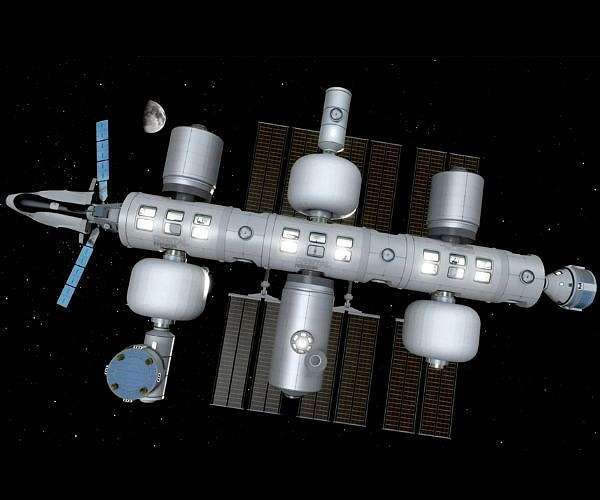26.03.2024

illustration only
As part of its initiative to establish new habitats in low Earth orbit, NASA has recently observed significant advancements in the life support system of Blue Origin's Orbital Reef, a commercial space station under development. This progress stems from the completion of testing milestones vital for sustaining human life in space, highlighting the collaboration between NASA and commercial entities in paving the way for future orbital habitation.
The successful completion of these milestones, encompassed within a NASA Space Act Agreement awarded in 2021, concentrated on the development of materials and designs essential for purifying, recycling, and storing air and water onboard. This undertaking is critical for supporting human spaceflight and extends the capacity for scientific exploration in microgravity environments.
Angela Hart, who leads NASA's Commercial Low Earth Orbit Development Program, emphasized the importance of these achievements in ensuring that commercial stations like Orbital Reef can maintain human life. Hart pointed out that reaching these milestones not only demonstrates progress in station design and development but also provides NASA with valuable insights into its commercial partners' advancements.
The Orbital Reef project aims to implement a life support system akin to that of the International Space Station (ISS), where a regenerative mechanism recycles and reclaims water and oxygen generated by occupants. This system is instrumental in reducing the need to transport these vital resources from Earth, thereby facilitating a sustainable living environment in space.
Throughout the testing phase, Orbital Reef's life support system underwent rigorous evaluation through four specific tests: trace contaminant control, water contaminant oxidation, urine water recovery, and water tank testing. These tests focused on assessing the efficacy of technologies designed to clean, reclaim, and store water and air, which are indispensable for long-duration space missions.
NASA's commitment to fostering the development of multiple commercial space stations, including Orbital Reef, through both funded and unfunded agreements, underscores the agency's strategy to maintain a continuous human presence in low Earth orbit. This approach not only aims to reduce costs and enhance safety but also supports NASA's broader goals of exploring deeper into space, with low Earth orbit serving as both a training ground and a stepping stone for future Artemis missions to the Moon and Mars.
Quelle: SD
